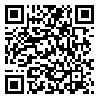Volume 8, Issue 3 (12-2020)
jmsthums 2020, 8(3): 75-86 |
Back to browse issues page
Download citation:
BibTeX | RIS | EndNote | Medlars | ProCite | Reference Manager | RefWorks
Send citation to:



BibTeX | RIS | EndNote | Medlars | ProCite | Reference Manager | RefWorks
Send citation to:
H A, B T, D M, H H, N P. The effect of education based on the theory of planned behavior on the risk of infectious residues among health workers working in health centers. jmsthums 2020; 8 (3) :75-86
URL: http://jms.thums.ac.ir/article-1-618-en.html
URL: http://jms.thums.ac.ir/article-1-618-en.html
1- Department of Public Health, School of Health , Torbat Heydariyeh University of Medical Sciences, Torbat Heydariyeh, Iran
2- Department of Health Education and Health Promotion, Social Determinant of Health Research Center, Mashhad University o Medical Sciences, Mashhad, Iran
3- Health Sciences Research Center, Torbat Heydariyeh University of Medical Sciences, Torbat Heydariyeh, Iran
2- Department of Health Education and Health Promotion, Social Determinant of Health Research Center, Mashhad University o Medical Sciences, Mashhad, Iran
3- Health Sciences Research Center, Torbat Heydariyeh University of Medical Sciences, Torbat Heydariyeh, Iran
Abstract: (4734 Views)
Background & Aim: Hospital waste requires special management due to the high level of hazardous properties. Regarding the fact that the incorrect disposal of medical waste is a serious threat to the environment and public health, health workers have a special role in this regard. The purpose of this study was to determine the effect of education based on the theory of planned behavior on the risk of infectious leukemia among health workers working in Torbat Heydariyeh health care centers.
Methods: This was a quasi-experimental study in which 110 health workers working in Torbat Heydariyeh health center participated. Subjects were randomly divided into two groups: control and intervention. Data were collected through a questionnaire. Then a training session (question and answer) was held for two hours by the researcher and at the end each participant was given an educational pamphlet on the topic. The variables were evaluated for 2 months after the intervention. Finally, data were analyzed using SPSS-22 software, paired t-test, independent t-test, and Chi-square.
Results: The mean scores of the two groups in terms of knowledge, attitude, performance, behavioral intention, mental norms and perceived behavioral control were not significantly different before the study. After training, the mean scores of all the above variables in the test group increased significantly (P <0.05) but the mean scores of the control group did not differ significantly (P> 0.05).
Conclusion: The organization of educational sessions based on the theory of planned behavior increases the level of knowledge and skills of health care workers for proper disposal of infectious wastes.
Methods: This was a quasi-experimental study in which 110 health workers working in Torbat Heydariyeh health center participated. Subjects were randomly divided into two groups: control and intervention. Data were collected through a questionnaire. Then a training session (question and answer) was held for two hours by the researcher and at the end each participant was given an educational pamphlet on the topic. The variables were evaluated for 2 months after the intervention. Finally, data were analyzed using SPSS-22 software, paired t-test, independent t-test, and Chi-square.
Results: The mean scores of the two groups in terms of knowledge, attitude, performance, behavioral intention, mental norms and perceived behavioral control were not significantly different before the study. After training, the mean scores of all the above variables in the test group increased significantly (P <0.05) but the mean scores of the control group did not differ significantly (P> 0.05).
Conclusion: The organization of educational sessions based on the theory of planned behavior increases the level of knowledge and skills of health care workers for proper disposal of infectious wastes.
Type of Study: Research |
Subject:
Special
Received: 2019/03/5 | Accepted: 2019/05/22 | Published: 2021/01/3
Received: 2019/03/5 | Accepted: 2019/05/22 | Published: 2021/01/3
Send email to the article author
| Rights and permissions | |
 | This work is licensed under a Creative Commons Attribution-NonCommercial 4.0 International License. |






